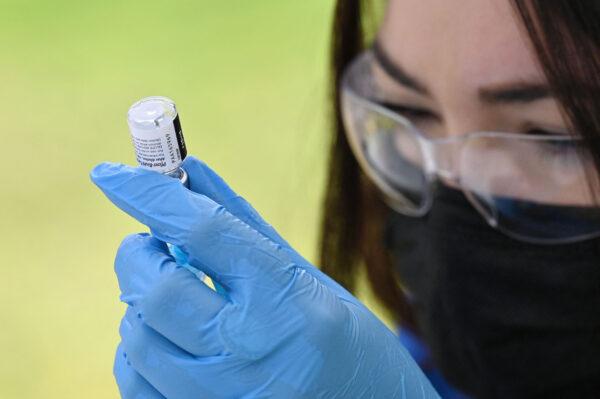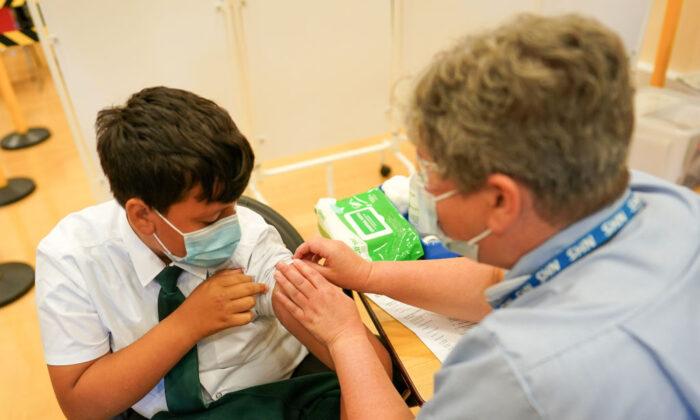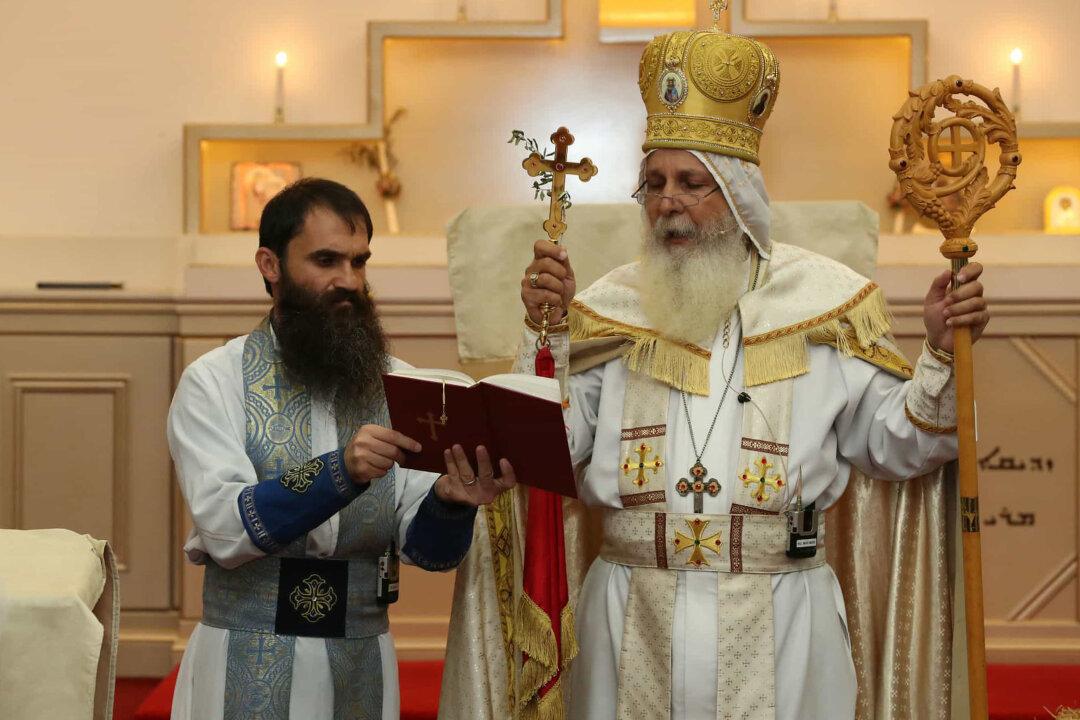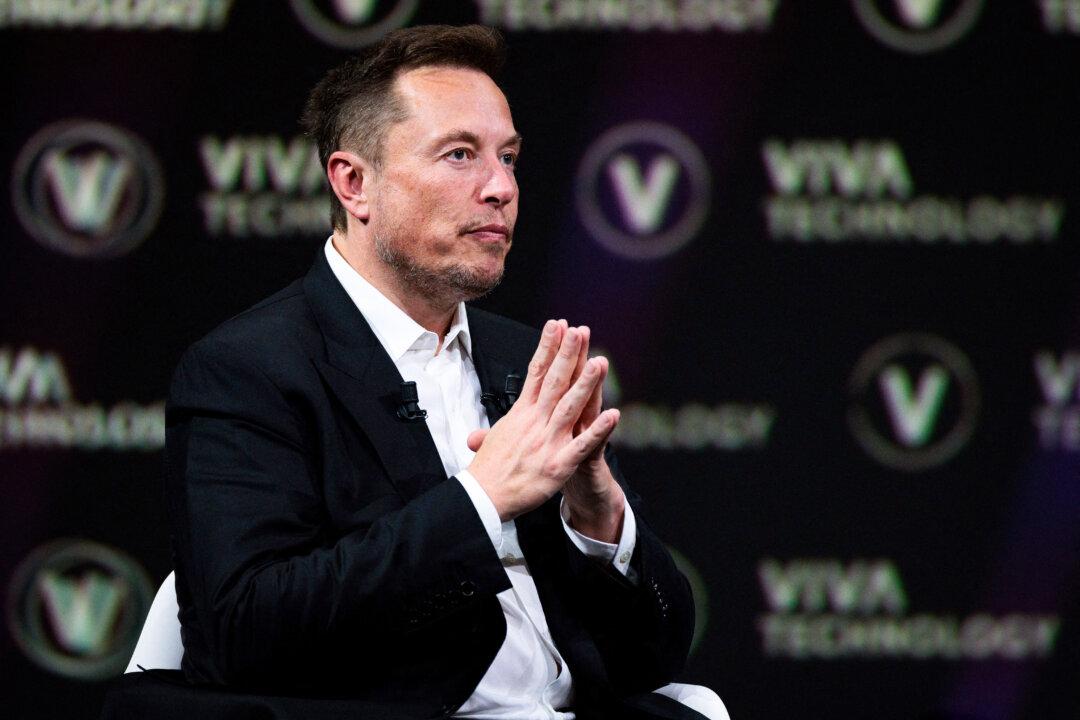Health Minister Greg Hunt on Tuesday invited Pfizer to seek approval from Australia’s medical regulator to have its vaccine trial approved for children aged five to 11.
In a letter to Pfizer’s Australia and New Zealand managing director, Hunt suggested the jab manufacturer should apply to the Therapeutic Goods Administration in parallel with its U.S application.
“I am heartened by your advice that trials of the Pfizer vaccine are showing promise in children under the age of 12 years of age,” Hunt wrote.
“Should the Australian Technical Advisory Group on Immunisation also approve vaccination of this age cohort, vaccination would commence as a priority.”
If regulators gave the green light, it would be possible for younger children to be vaccinated this year, Chief Nursing Officer Alison McMillan said.
On Monday, Pfizer announced its first result from a pivotal trial of the COVID-19 vaccine in 2,268 participants aged five to 11.
The vaccine manufacturer reported that young children have “robust neutralizing antibody responses” and “strong immune response” one month after the second dose, but noted that “the vaccine may not protect everyone.”
Benefits vs Risks
However, some experts have questioned whether the benefits of COVID-19 vaccines would outweigh the risks for kids, given the high rate of adverse events in those vaccinated and the mounting evidence that children are substantially less likely to develop a severe illness or die from COVID-19 than adults, which has been shown by several large U.K. studies.
As of Sept. 21, children aged 0-9 account for around just 11 percent of all COVID-19 cases in Australia while those aged 10-19 make up 13.4 percent, with no deaths reported in children younger than 10.While several health experts argued that not vaccinating kids against COVID-19 may expose them to severe disease and harm already disadvantaged children, the UK Joint Committee on Vaccination and Immunisation (JCVI) said that the health benefits of vaccination on transmission are relatively small, given the highly vaccinated population and the lower effectiveness of the vaccine against infection with the Delta variant.
“The margin of benefit, based primarily on a health perspective, is considered too small to support advice on a universal programme of vaccination of otherwise healthy 12 to 15-year-old children at this time,” JCVI said in a statement this month.The committee recommended that children aged between 12 and 15 should only get a jab if they are clinically vulnerable or live with someone who is.

Scientists Argue Vaccinating the Young An Ethical Question
Even though only around 2 per cent of children are infected by COVID-19, Murdoch Children’s Research Institute immunisation researcher Margie Danchin insisted vaccination for kids is necessary in order to protect unvaccinated adults.
“Kids can still transmit the virus and particularly transmit it to adults. Unvaccinated adults, unvaccinated grandparents are vulnerable,” she told ABC TV.
“So they (children) do play a role in transmission as well. Of course, we want to see them get back to school. We want to see them get back to lives.”
However, the assertion that vaccinating young cohorts will keep adults safe remains “hypothetical” argued a group of researchers from Canada, the U.S and France in an op-ed for the UK peer-reviewed medical trade journal BMJ.
They said that even if one assumes protection against severe COVID-19, an extremely high number of children would need to be vaccinated in order to protect an adult from a bout of severe COVID-19, considering the low transmission rates, the high proportion of children already being already infected, and most adults being vaccinated or already infected.
“If the goal is to protect adults, shouldn’t efforts be focused on ensuring adults are fully vaccinated rather than targeting children?” the scientists asked, saying this raises a “crucial question” of ethics.
“It is highly inequitable to be vaccinating very low-risk children in wealthy countries while many vulnerable adults in low-income countries have not had any doses.”A study published in The Lancet Europe in March reported that school teachers are more likely to get SARS-CoV-2 from other adults than they are from their students.
Professor Adam Finn, a member of the JCVI, told The Times last Saturday that normally, scientists would have fully investigated the long-term consequences of rare side effects of the vaccines before recommending them to children, but the COVID-19 public health crisis has prevented them from doing so.
‘It (vaccinating children) is a finely balanced decision. It’s not a black-and-white decision. It’s not essential that these children receive the vaccine, but equally, it’s a perfectly sensible thing to do,” he said.





Friends Read Free